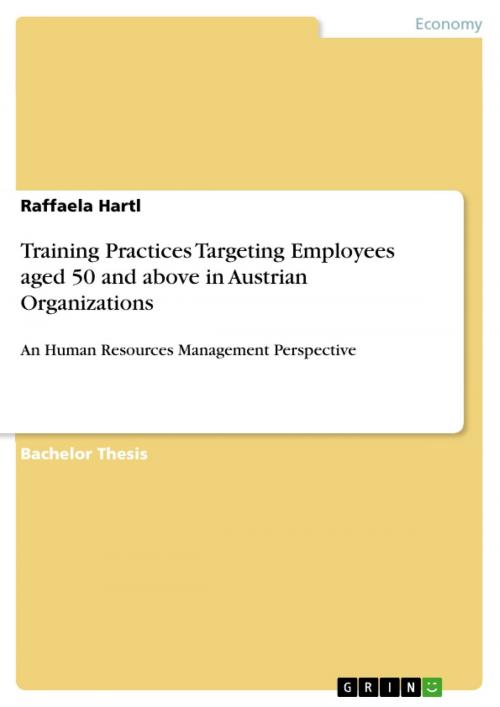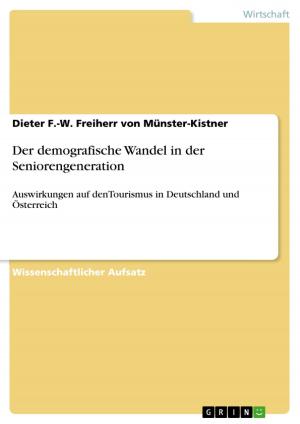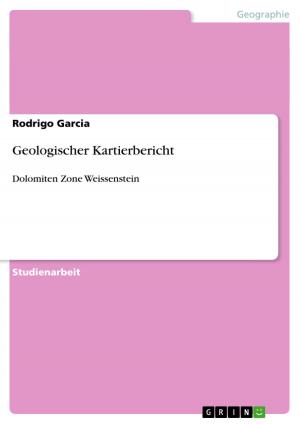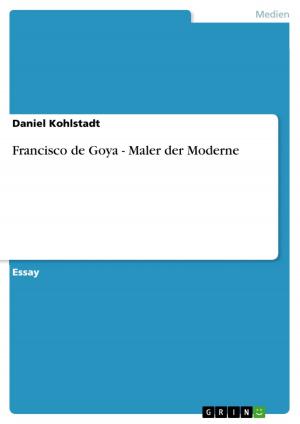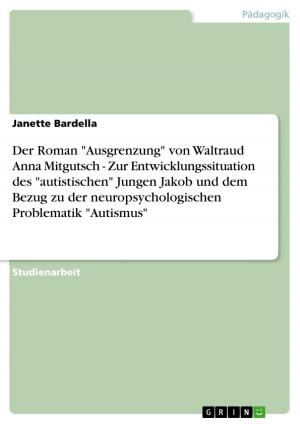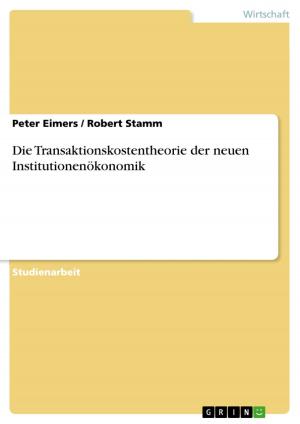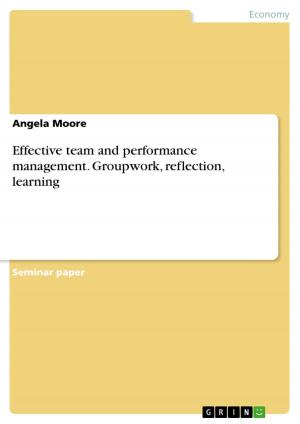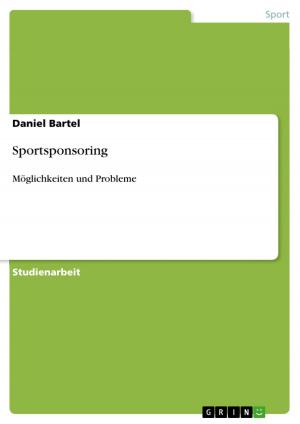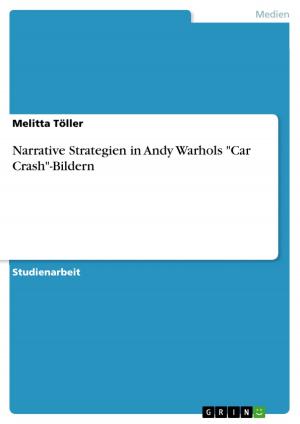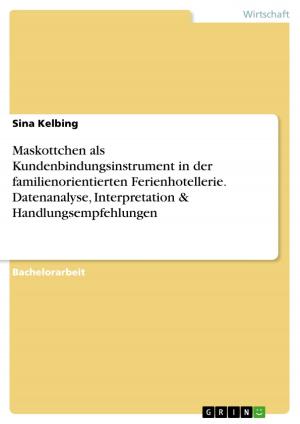Training Practices Targeting Employees aged 50 and above in Austrian Organizations
An Human Resources Management Perspective
Business & Finance, Human Resources & Personnel Management| Author: | Raffaela Hartl | ISBN: | 9783668014800 |
| Publisher: | GRIN Verlag | Publication: | July 14, 2015 |
| Imprint: | GRIN Verlag | Language: | English |
| Author: | Raffaela Hartl |
| ISBN: | 9783668014800 |
| Publisher: | GRIN Verlag |
| Publication: | July 14, 2015 |
| Imprint: | GRIN Verlag |
| Language: | English |
Bachelor Thesis from the year 2015 in the subject Business economics - Personnel and Organisation, grade: Sehr Gut, Universities of Applied Sciences Wien (Personal & Organisation), language: English, abstract: This thesis is based on the literature review of the bachelor thesis 'The Aging workforce - how to sustain employability and career development through age management policies' which revealed that the workforce is aging due to demographic changes and that age management practices need to be applied in order to deal with the implications of the aging workforce. According to the literature, age management is reflected in the employability and career development of the aging workforce and one of the measures of age management is to adapt training practices for older employees. Due to demographic changes, an increasing number of employees aged 50 and above will be available resources - the size of young people entering the labour market will decrease and the employment rate among older people will increase - which means that organizations will have to rely on older employees. In order to sustain a competitive workforce, organizations need to invest in the human capital and provide continuous employee development to maintain and refresh skills. Therefore, it is crucial to offer training opportunities to all age groups to extent working lives. The training content must be relevant to a range of ages, from employees who have graduated recently to those who are nearing retirement. Adult learners have special characteristic and traits towards learning and their learning behaviour changes with the progress of age. To make sure that the training content can be consumed and grasped accordingly, the training method and design need to be tailored to older employees. The literature identified three key development areas in order to adapt training practices for older employees: (1) access to training; (2) adjustment of training methods to older employees; (3) and age awareness trainings for management. At present, organizations are still focusing their training practices mainly on young employees and older employees are often stuck on the sidings. In favour of older employees, age awareness has to be raised in order to trigger a rethinking process of current recruitment and retention practices which are traditionally targeted at young people.
Raffaela Banjan ist seit 2011 für den Bereich Training & Entwicklung bei der OPEC Fund für internationale Entwicklungen (OFID) zuständig. Sie studierte berufsbegleitend Personal- und Wissensmanagement am Institut für Personal und Organisation an der FHWien. In ihrer Abschlussarbeit hat sie sich sehr intensiv mit dem Thema 'Aging Workforce' beschäftigt und führte eine Studie zur betrieblichen Weiterbildung für ältere Arbeitskräfte in österreichischen Unternehmen durch. Bei der diesjährigen Future of Work Konferenz in Stegersbach hielt sie dazu einen Workshop und wurde anschließend zu einem Podcast von Gerstbach Design Thinking eingeladen. Raffaela Banjan hat ihren Werdegang im Bereich Marketing & Sales in einem schwedischen Konzern begonnen und war danach in einer großen internationalen Unternehmensberatung tätig. Seither hat sie sich im Bereich internationale MitarbeiterInnenentwicklung in der heutigen Generationenvielfalt spezialisiert.
Bachelor Thesis from the year 2015 in the subject Business economics - Personnel and Organisation, grade: Sehr Gut, Universities of Applied Sciences Wien (Personal & Organisation), language: English, abstract: This thesis is based on the literature review of the bachelor thesis 'The Aging workforce - how to sustain employability and career development through age management policies' which revealed that the workforce is aging due to demographic changes and that age management practices need to be applied in order to deal with the implications of the aging workforce. According to the literature, age management is reflected in the employability and career development of the aging workforce and one of the measures of age management is to adapt training practices for older employees. Due to demographic changes, an increasing number of employees aged 50 and above will be available resources - the size of young people entering the labour market will decrease and the employment rate among older people will increase - which means that organizations will have to rely on older employees. In order to sustain a competitive workforce, organizations need to invest in the human capital and provide continuous employee development to maintain and refresh skills. Therefore, it is crucial to offer training opportunities to all age groups to extent working lives. The training content must be relevant to a range of ages, from employees who have graduated recently to those who are nearing retirement. Adult learners have special characteristic and traits towards learning and their learning behaviour changes with the progress of age. To make sure that the training content can be consumed and grasped accordingly, the training method and design need to be tailored to older employees. The literature identified three key development areas in order to adapt training practices for older employees: (1) access to training; (2) adjustment of training methods to older employees; (3) and age awareness trainings for management. At present, organizations are still focusing their training practices mainly on young employees and older employees are often stuck on the sidings. In favour of older employees, age awareness has to be raised in order to trigger a rethinking process of current recruitment and retention practices which are traditionally targeted at young people.
Raffaela Banjan ist seit 2011 für den Bereich Training & Entwicklung bei der OPEC Fund für internationale Entwicklungen (OFID) zuständig. Sie studierte berufsbegleitend Personal- und Wissensmanagement am Institut für Personal und Organisation an der FHWien. In ihrer Abschlussarbeit hat sie sich sehr intensiv mit dem Thema 'Aging Workforce' beschäftigt und führte eine Studie zur betrieblichen Weiterbildung für ältere Arbeitskräfte in österreichischen Unternehmen durch. Bei der diesjährigen Future of Work Konferenz in Stegersbach hielt sie dazu einen Workshop und wurde anschließend zu einem Podcast von Gerstbach Design Thinking eingeladen. Raffaela Banjan hat ihren Werdegang im Bereich Marketing & Sales in einem schwedischen Konzern begonnen und war danach in einer großen internationalen Unternehmensberatung tätig. Seither hat sie sich im Bereich internationale MitarbeiterInnenentwicklung in der heutigen Generationenvielfalt spezialisiert.
